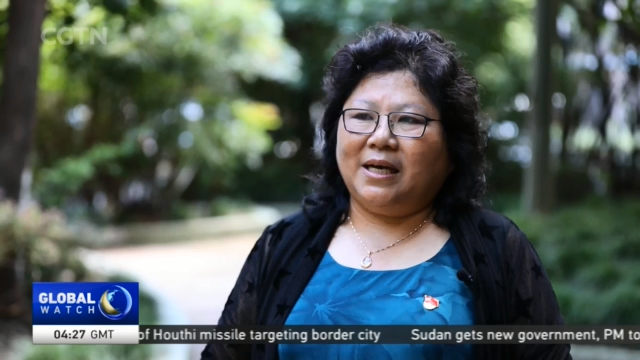
13:16, 16-Sep-2018
China Reform and Opening-up: Shanghai’s Pudong sees transformation from village to metropolis
Updated
13:00, 19-Sep-2018
03:51

This year marks the 28th anniversary of the establishment of the Pudong New Area. It's a district in Shanghai that's witnessed significant development through the years, and is viewed as an example of China's reform and opening up. As CGTN's Xu Mengqi reports, the changes in Pudong have not only benefited local residents, but are also luring international talents.
When people speak of Shanghai, they often think of an international, commercial and developed megacity in China. But that hasn't always been true, at least not here in Pudong, a district named for being east to Shanghai's Huangpu River.
ZHU BAOFENG PUDONG RESIDENT "I remember it was April 18th, 1990, when the central government decided to develop Pudong, to reform and open it up. Each year the area has got a new look."
The past of Pudong can be found in these old photos: large swathes of farmland and cramped living spaces in village houses.
"Our house was 16 square meters. There were my parents, my two sisters and me, 16 square meters for the five of us. And we shared the bathroom and kitchen with the neighbors."
Zhu Baofeng, a community service worker born and bred in Pudong, lived through the area's poorest of times, but when history set the stage for the district, she was also made a direct beneficiary.
ZHU BAOFENG PUDONG RESIDENT "At the time people would prefer a bed in the old Shanghai, to a room in Pudong. Now it's different. Now people would fight to get a place here. Housing prices have soared."
The place where Zhu used to live in Pudong, is now known as Lujiazui, Shanghai's financial district.
XU MENGQI SHANGHAI "From farmlands to skyscrapers, the rise of Lujiazui was a manifestation of industrial upgrade. It drove the establishment of the high-tech parks and free trade zones in Pudong. And while native residents like Zhu Baofeng stand to benefit from these developments, the city has also opened itself to newcomers."
That includes foreign nationals like Hong Chow, a German Chinese and the country manager of Roche, a world leader in biotech from Switzerland. The company was one of the first multinational firms to establish a base in Pudong's free trade zone. Lured by her homeland's fast growth, Chow returned to China in 2011.
HONG CHOW GENERAL MANAGER, ROCHE CHINA "In terms of healthcare, China was lagging behind, and esp in cancer. I really wish that Chinese patients would get access to new medicines same time as European and American patients."
In 2017, Pudong introduced China's first talent scheme to allow free trade zones to recommend foreign talents for permanent residence, and Chow got the first "Chinese green card" under the new scheme.
HONG CHOW GENERAL MANAGER, ROCHE CHINA "With this card, I think for instance my child can get a local education, I can buy property. If you read the back of my card, it actually says it provides the same benefits as a local resident."
XU MENGQI SHANGHAI "Pudong is already home to nearly 100,000 foreign nationals and more than 30,000 foreign companies, and district officials say they will continue to reform their talent schemes and administrative rules to make Pudong a better place for living and working.”
From poor, swampy villages to a modern, international metropolis, Pudong's development is systematic, and its changes, multifaceted. Today Pudong is seen as an area where China's drive to reform and opening-up is best carried out, but its story is still ongoing. XMQ, CGTN, Shanghai.

SITEMAP
Copyright © 2018 CGTN. Beijing ICP prepared NO.16065310-3
Copyright © 2018 CGTN. Beijing ICP prepared NO.16065310-3